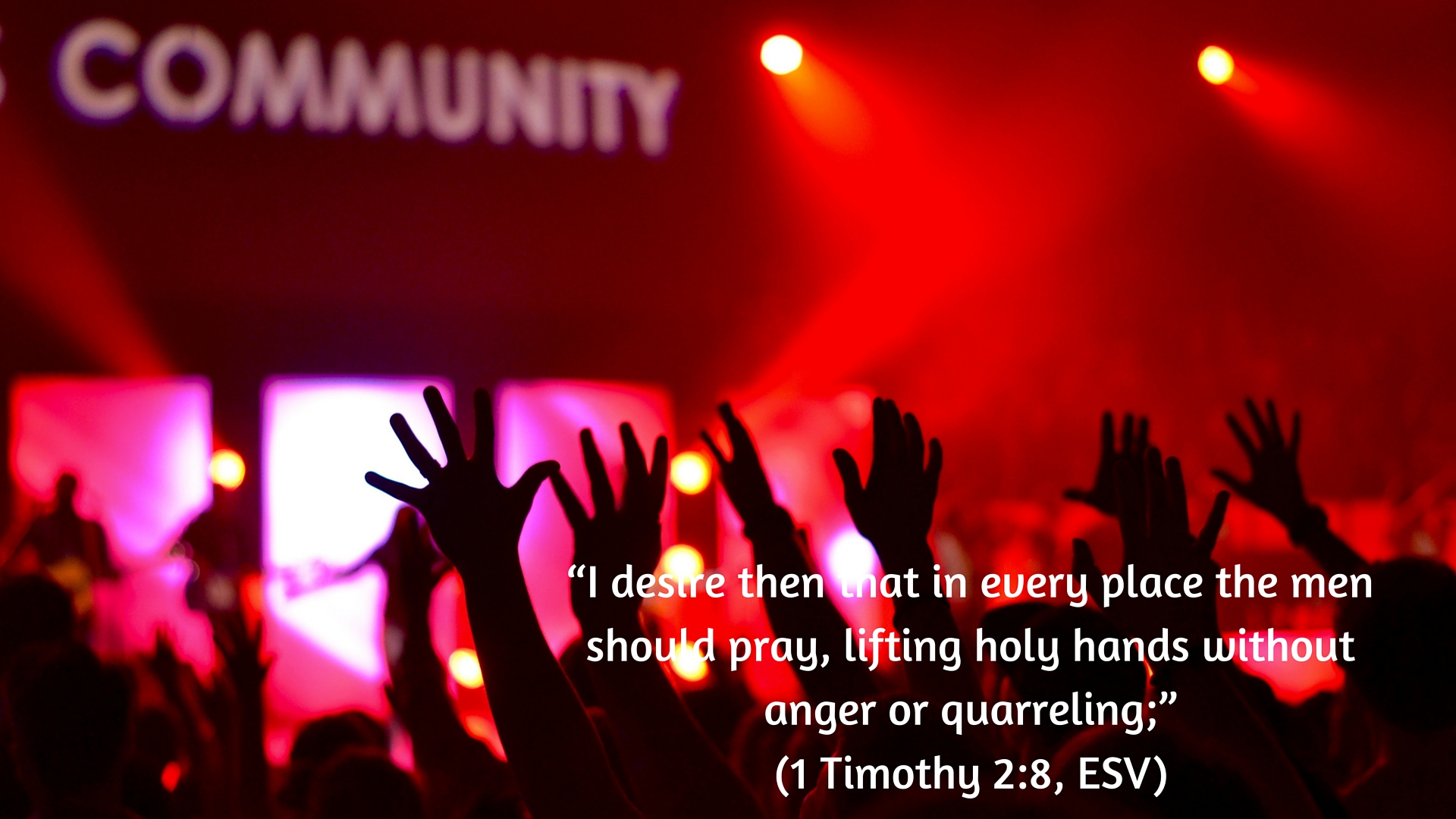“I desire then that in every place the men should pray, lifting holy hands without anger or quarreling; likewise also that women should adorn themselves in respectable apparel, with modesty and self-control, not with braided hair and gold or pearls or costly attire, but with what is proper for women who profess godliness—with good works.” (1 Timothy 2:8–10, ESV)
Paul addresses some particular issues facing the church in Ephesus. Evidently, some of the men had been expressing anger toward one another, and some of the women had been dressing in ways that were associated with prostitutes. As a result, this young church community was struggling, and their testimony to the watching world was not what it should be. The men in the congregation may have seemed pious in their prayers, but they were malicious when they spoke to one another. Paul calls them to repent of this and pray without anger and quarreling. Hands that are raised to heaven need to be clean hands, accompanied by a pure heart, and holy. Their mouths were moving between blessing God and reviling one another. Anger is a destructive force. James says that anger of man does not produce the righteousness of God (James 1:20). Paul tells the Colossians to put away anger (Col. 3:8). Believers should not allow anger to damage their relationships with other members of God's family. Hands lifted will not be holy if they continue to walk in anger. Jesus said, “So if you are offering your gift at the altar and there remember that your brother has something against you, leave your gift there before the altar and go. First, be reconciled to your brother, and then come and offer your gift.” (Matthew 5:23–24).
One must avoid oversimplifying this statement without understanding its place historically. During this period of history, braided hair, gold, and costly pearls were associated with cult prostitutes. The city of Ephesus was home to the temple of Aphrodite and every evening prostitutes would emerge from the temple. They would be recognized by their elaborate hairstyles and ornate jewelry. It seems as if some of the Christian women had started to dress in a similar way which was sending the wrong message and damaging the reputation of the Christian community. These customs may seem archaic now, but the point that Paul is making is highly relevant. What is the motivation behind what the woman that belongs Jesus wears? Does what a Christian woman wears send the wrong message? Paul's solution to this problem is that women of God adorn themselves with good works. Your wardrobe belongs to Jesus.

